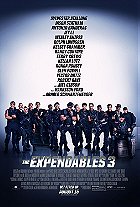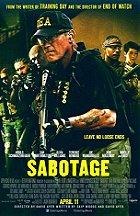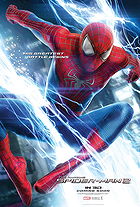Despite sharing the same writers as the original Taken, 2014's Taken 3 feels as if it was created by filmmakers who were oblivious to what made the 2008 gem such a breakout success. Years on, Taken still stands as a superior action offering; a bruising, fast-paced slice of primo entertainment elevated by top-notch technical specs and the presence of seasoned thespian Liam Neeson. Taken 2 hopelessly missed its mark, and Taken 3 is even worse, ill-advisedly trying to reinvent the franchise by becoming a mystery-thriller that rips off The Fugitive, as opposed to being the balls-to-the-wall actioner that we all wanted. Written by Luc Besson and Robert Mark Kamen, it's not cerebral enough to succeed on its own terms, and it utterly fails as over-the-top fun. It doesn't help that Taken 2 director Olivier Megaton returned for this instalment, further demonstrating his incompetence when it comes to pacing, storytelling, and, most heartbreakingly, action.

Following the events of the first two movies, Bryan Mills (Neeson) is living a comfortable life, and now maintains stable relationships with those that matter the most to him: beloved daughter Kim (Maggie Grace) and his ex-wife Lenore (Famke Janssen). However, Lenore is murdered in Bryan's apartment and the former government operative is framed for the crime. Pursued by Inspector Franck Dotzler (Forest Whitaker), Bryan goes on the run to prove his innocence, seeking help from his old CIA buddies Sam (Leland Orser), Casey (Jon Gries) and Bernie (David Warshofsky).
Megaton has a poor track record with Besson's EuropaCorp company - he killed the Jason Statham-starring Transporter series with the subpar third instalment (a reboot is coming, with a different actor), and he mucked up Taken 2. Added to this, while doing the promotional rounds for the second film, Megaton admitted that he's not a fan of sequels or action films. So, why the fuck does this preposterously-named hack still get directorial work?

Taken 3 feels closer to A Walk Among the Tombstones than the first Taken, as the movie spends most of its time focusing on exposition and story. Tombstones was actually good, however, as it was R-rated, legitimately interesting and sophisticated. Taken 3, on the other hand, is contrived and dull as dishwater. There's no verve or style here, nor is there any sophistication or smarts. Worse, the justification for Lenore's murder and for Bryan being framed is mind-numbingly stupid and convoluted. The reveal is not even shocking; it carries no weight and makes no impact. Instead, you sit back and wonder if they're actually serious. Admittedly, it's interesting to see Bryan working with his trio of resourceful friends that were introduced in the first movie, and it's a bonus to have Whitaker as an intelligent cop. Too bad the movie does fuck all with these characters.
Action fans seeking a fix should look elsewhere - Taken 3 has nothing to satisfy you. There is almost no action here. There's a tiny smattering of fisticuffs, a couple of foot chases and a grand total of two shootouts, one of which is so brief that it barely qualifies as an action scene. This stuff will barely keep you awake. The climactic gunfight in particular is lacklustre and vanilla, with not a drop of blood to be seen. Most embarrassing is witnessing one of Bryan's victims being shot while his shirt is open; his gut wounds should be spewing with blood, but instead he refuses to bleed as he, um, “bleeds out” and dies with mere ink stains on his stomach. Taken 3 doesn't even feel PG-13... it feels G-rated! Neeson seems to be love-slapping policemen to knock them out, and Lenore's slashed neck looks like a hickey. Making matters worse, when Bryan unleashes his trademark skills, the editing and camerawork are flat-out awful - most of the fights are incomprehensible. When an action movie cannot deliver so much as a modicum of good quality action, there's a huge problem.

As to be expected, Neeson remains a solid leading man. His endless charisma is about the only thing saving the production from total inertia. Neeson is badass as always, which is why it's a huge shame that the material fails to serve him. Whitaker, too, is solid, bringing some degree of gravitas to the proceedings. The rest of the cast fails to make much of an impact, though, with Maggie Grace looking fairly uninterested. Lenore's husband Stuart is re-cast here, with Dougray Scott replacing the older, more placid Xander Berkeley from the first film. It's a jarring change, and though Scott is a decent actor, his presence is ultimately a bit of a spoiler. After all, Scott plays shady characters and is renowned for villains. Go figure.
With its flimsy narrative and utterly generic construction, it feels as if the screenplay for Taken 3 was initially written as some cheap straight-to-video distraction, but was ultimately retooled to include Bryan Mills. Ironically, the end product might have been superior if it did remain in the straight-to-video realm starring somebody like Scott Adkins, as it would most likely have been R-rated and included some decent action. Unfortunately, we're left with this incredible dud; a painfully leaden, cynical cash-in that ends the Taken series with a resounding whimper and feels a lot longer than its 109-minute running time. Taken did deserve sequels and it really wouldn't have been too difficult to make a successful follow-up. The formula is simple: a badass Liam Neeson killing hordes of nameless extras in a dumb fun actioner. But, apparently, Besson and co. wanted to make something classier by toning down the action, resulting in a movie that's still powerfully dumb but no fun at all.
2.1/10
 Login
Login
 Home
Home 183 Lists
183 Lists 1668 Reviews
1668 Reviews Collections
Collections
 0 comments,
0 comments, 






































